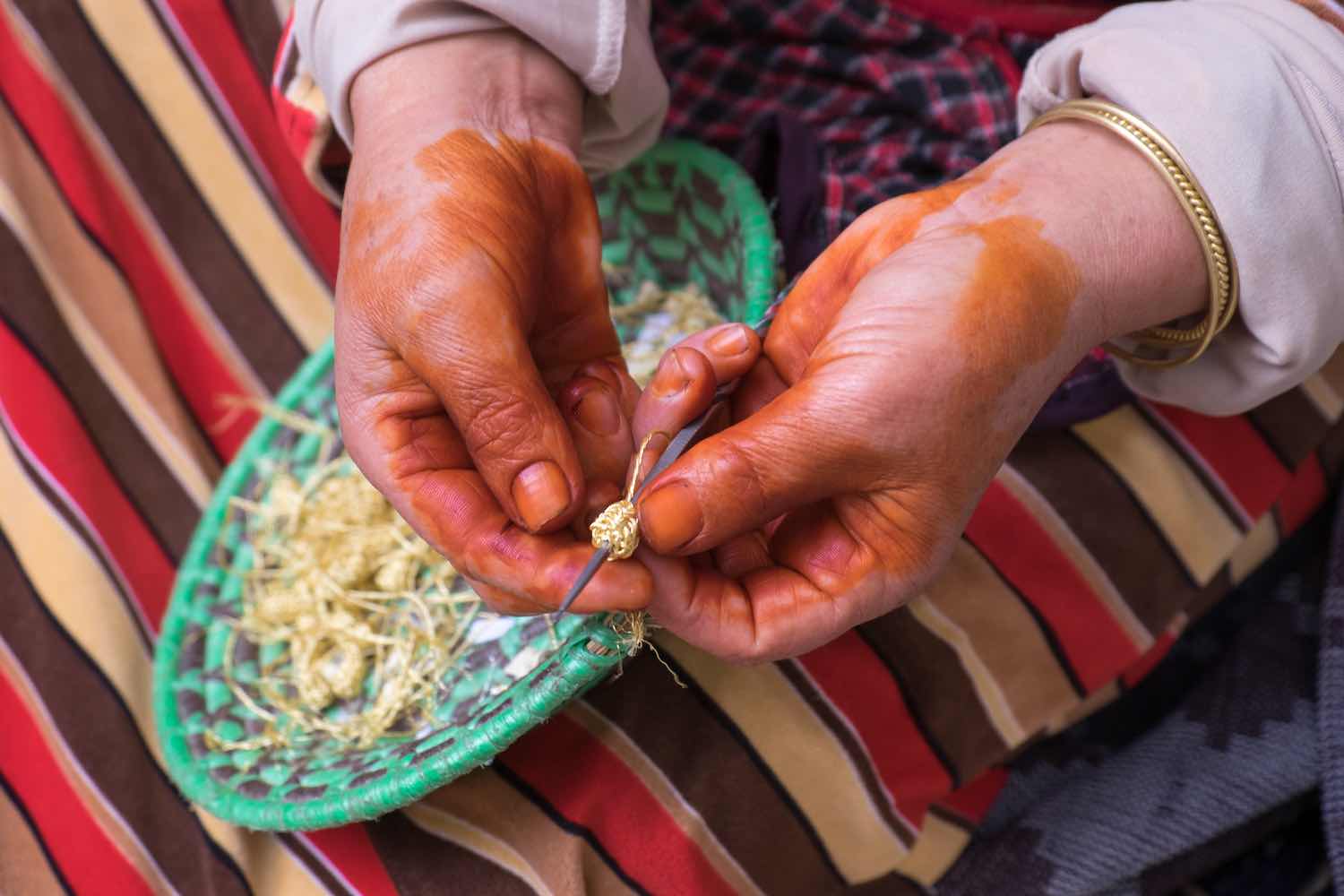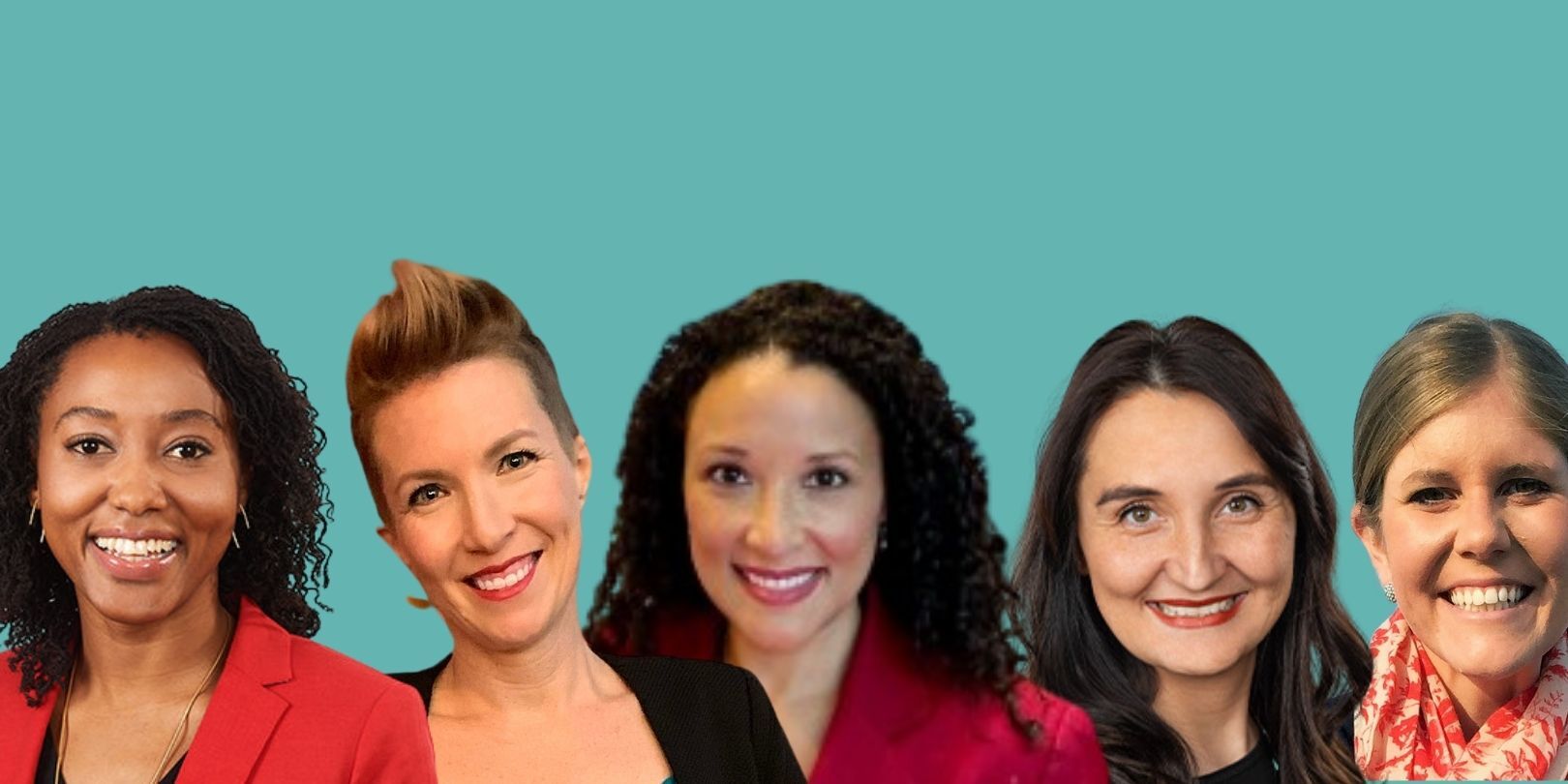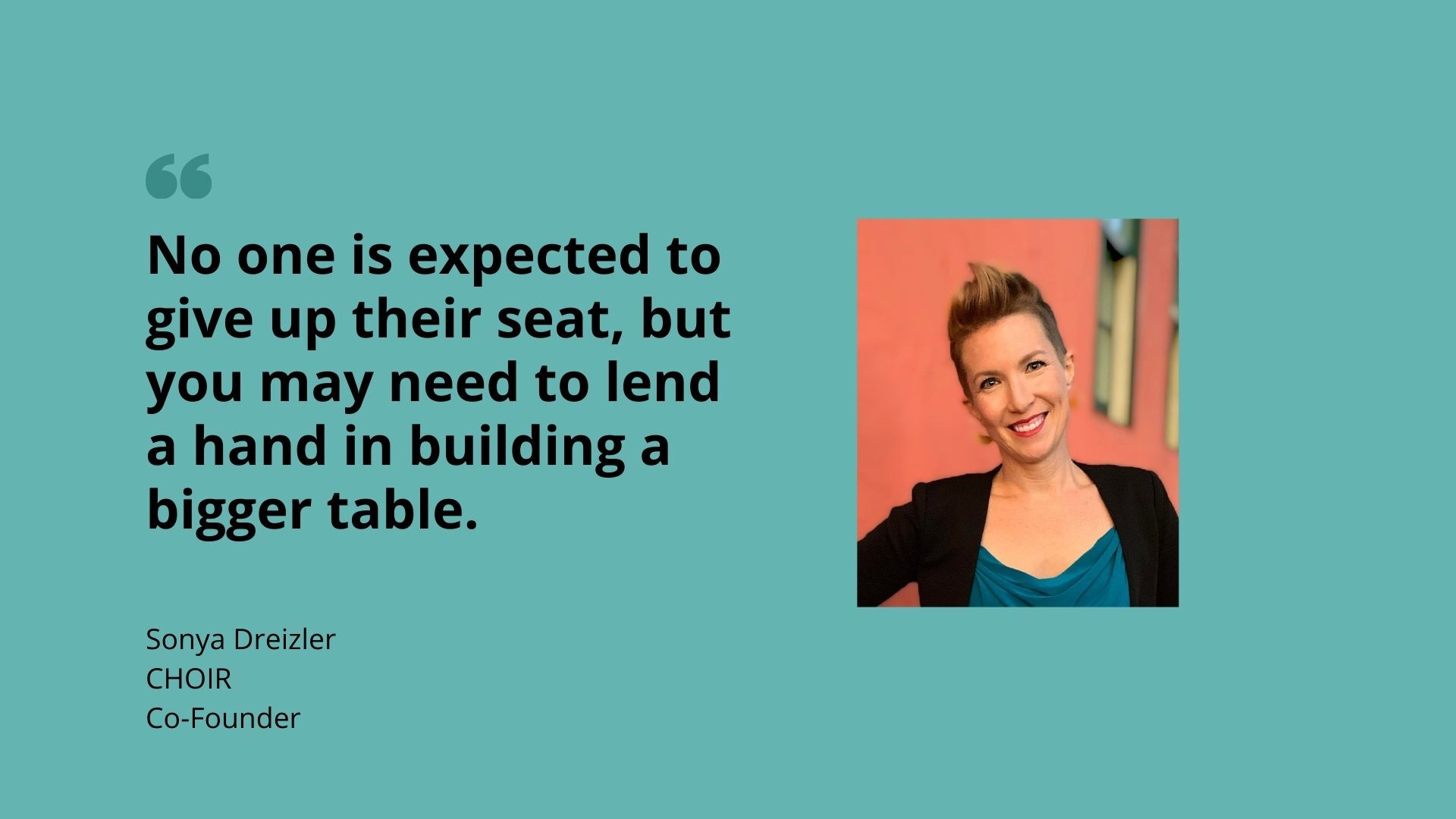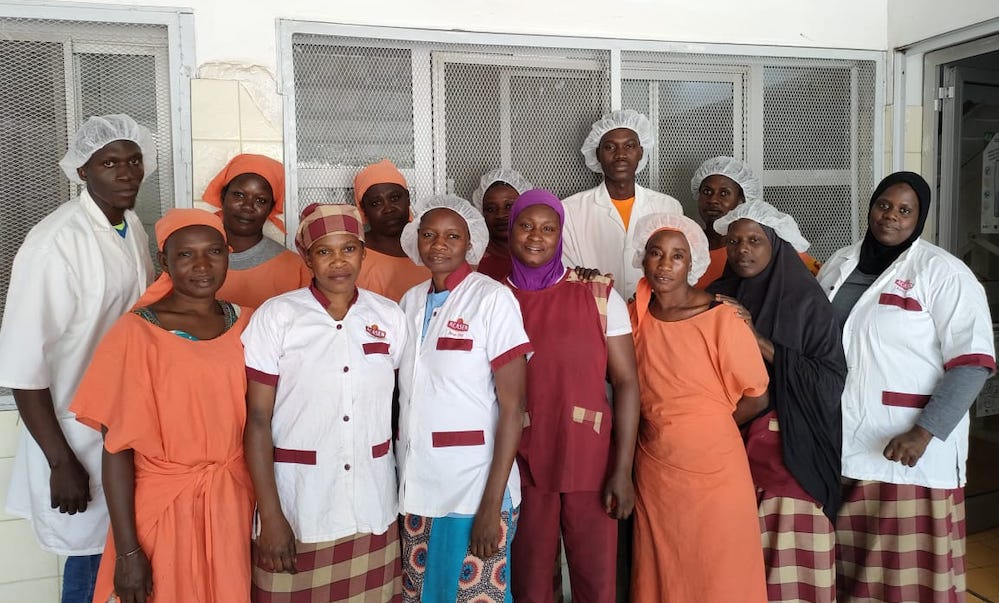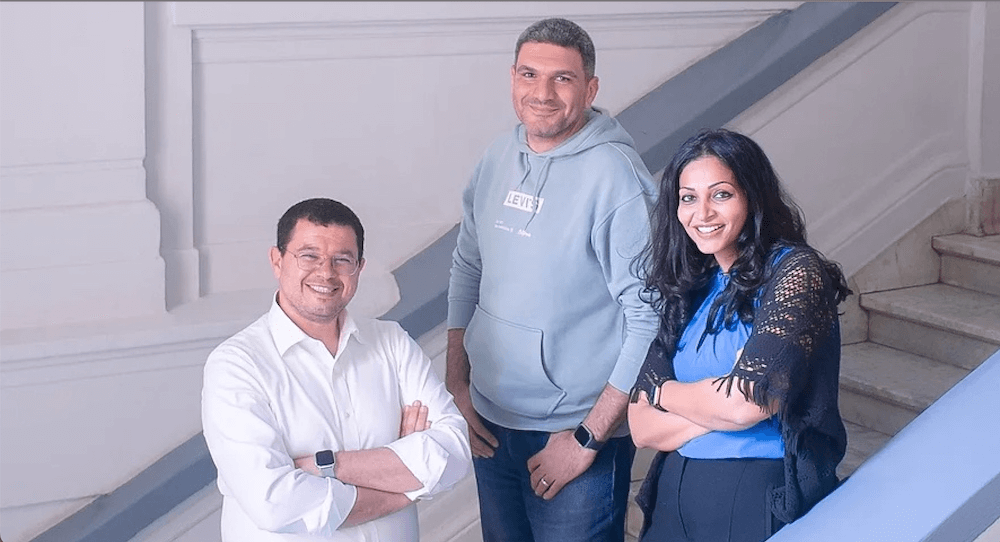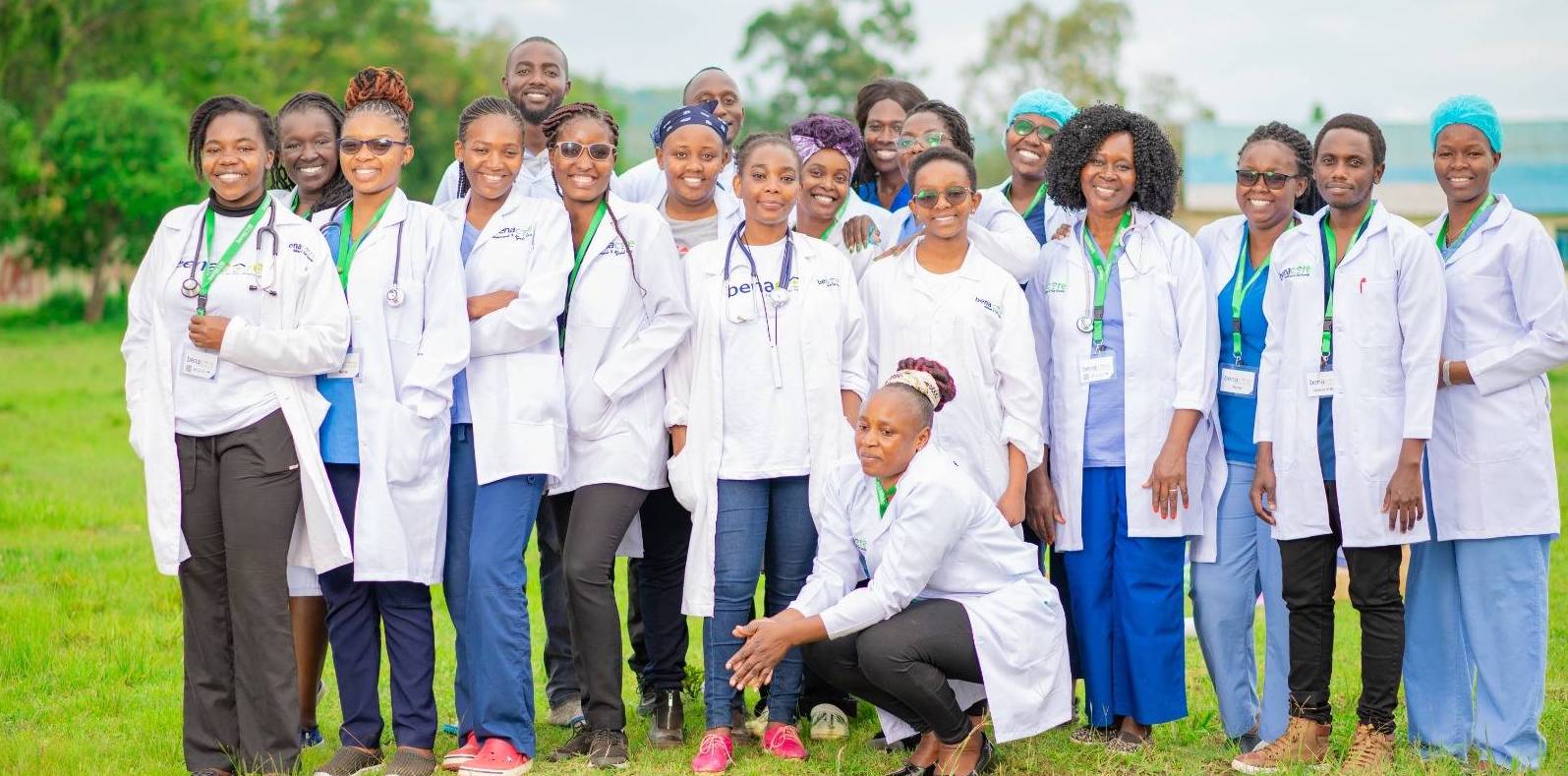The following is an excerpt from “Working to restore: Harnessing the power of regenerative business to heal the world,” by Esha Chhabra.
In India’s northern state of Uttarakhand women are farming on the terraced fields. They’re collecting mint, nettle, and rosemary from their one-acre plots. In the eastern state of West Bengal, Nepali women are hugging the sloped tea estates, plucking tea leaves. In Kenya, they’re picking through tea estates in Kericho. In Uganda, it’s bananas. In Nicaragua, it’s coffee.
“Women are not only the lifeblood of their families and communities, but they also happen to be the backbone of the coffee supply chain,” says Noushin Ketabi, one of the cofounders of Vega Coffee, a company educating female coffee farmers to become roasters and coffee specialists in Nicaragua.
“However, they’ve historically lacked the same access to resources as their male counterparts,” she says. “The only way to achieve gender equity in the coffee supply chain and beyond is to truly recognize women and to work toward tearing down any barriers that stand between them and the opportunities that they so richly deserve—to learn and advance, create a bright future for themselves and [their] families, and shape their world.”
The problem of women’s restricted rights is not limited to the coffee sector. Many rural women work on farms where they do not even have rights to the land. According to the United Nations, less than 13% of the world’s female agricultural workers have land rights. In many regions, such as South Asia and Sub-Saharan Africa particularly, 60% of women work in agriculture.
Women in the developing world are a strong force in agriculture, yet they need support to be given a voice.
One of the UN Sustainable Development Goals is gender equality. It underpins many of the other goals: education, helping the environment, fighting hunger and financial inclusion.
Just as in the developed world, women in developing countries run their households, feed their children, and look after the health of the family. The context is different: the developing world is where the impact of climate change, hunger, and inequity is more acute. If companies invested in empowering women, they could address half of the Sustainable Development Goals in one sweep. Women hold the key to their family’s health, financial prosperity, and the vitality of the land they work on.
It’s a ripple effect. If women are able to farm their land organically—and to take care of it from season to season with regenerative practices like mulching, intercropping, and using cover crops—they’ll have healthier land in the long run. That translates to less erosion from heavy rains, better odds at dealing with drought because healthier soil traps and holds more water, healthier foods for them, and a safer environment to work in. They don’t have to spend as much on fertilizers and add-ons, resulting in cost savings. They can use what’s there to enrich the soils and harvest seeds each season to plant in future seasons—a cycle that’s financially beneficial for them and their families.
With more money in their pockets – and organic products fetching higher prices – women can invest those funds in their children and in their own futures.
That could be the saving grace for mitigating climate change. Driving up into the hills of Uttarakhand in India, you’ll spot women working small plots of land – bent over, dressed in saris and wrapped in shawls to ward off the chill of the wind coming off the Himalayas. They tend to fields of amaranth, rye and barley. Many are alone: the men have left for the cities to find paying work – or are sitting idle in the village center, drinking.
It’s a trend that development experts call the “feminization of agriculture.” By necessity, the women are managing the family’s finances, and doing it well. A comprehensive study of 350 microfinance institutions, or MFIs, in 70 countries concluded that women have higher loan repayment rates than men and thus are less risky for the lender.
“More women clients is associated with lower portfolio risk, lower write-offs, and lower credit-loss provisions,” the study found. “These findings confirm common beliefs that women in general are a better credit risk for MFIs.” This is what Dr. Muhammad Yunus of Grameen Bank and the microfinance community established nearly two decades ago. Yet we’re still struggling to adopt these ideas widely.
Women are savvy with money not because they are frugal or overly cautious but because they see their family’s expenses firsthand – school fees, health bills, trips to the market for food and fuel – and they tend to think long term.
Banding together
Kalyan Paul and his wife, Anita, are Delhiites who nearly two decades ago saw the trend of farms being run by women. In the state of Uttarakhand alone, nearly 6,000 women struggled to work farms with increasingly depleted soil quality and little support. That led the Pauls to create a foundation devoted to the development of the women of the region and the preservation of the forested slopes they call home.
“This is not an easy fix. We’ve got young people going to the cities. We’ve got girls in the schooling system here that are not being taught about the local ecology. And the average age of the farmer is a fifty-plus-year-old woman,” Kalyan Paul says. “How are we going to save the forest?”
The Pauls employed women to build nurseries and grow saplings of indigenous trees and trained the women how to look after them. This led to the development of a cooperative so the women could earn money from their organic farms and handicrafts. Women from more than 200 villages across the Gagas and Kosi river basins have come together to form the Mahila Umang Producers Company, a cooperative of 3,000 women made up of small self-help groups of 10 to 20 women each.
Within these smaller groups women discuss family matters, ways to earn more money, the water shortage in the region, and their own health. They’ve been able to increase their incomes and spread the word about organic farming. Moreover, they’ve planted over one million native tree saplings and shrubs in the river basins to revive the forests. Each year, members plant another five thousand fruit tree saplings, whose fruit they can eventually harvest and eat or sell for additional income.
At their headquarters, tucked in on a hillside about a 10-hour drive from Delhi, they sell the fruits of their farms: dried herbs, grains, pomegranate seeds, jams, jellies, and pickles. Recently they’ve developed a website that has allowed them to reach all of India. “We have to find a balance between economics and ecology,” Kalyan Paul says.
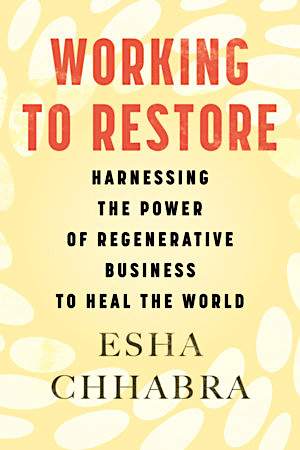
Women should be a part of the answer. In developing countries, women take on the brunt of the work: working in the fields, collecting water, gathering cooking fuel and food, and then looking after the well-being of the family – they’re seeing and experiencing climate change firsthand, arguably more than the men of the community.
When women work in agriculture, they see the effects of erratic rainfall, drought, high temperatures, storms and a shortage of water. It affects what they till every day. Listening to women, and giving them the resources they need, could help mitigate many of these challenges.
It goes beyond women’s role in conserving the environment to recognizing women for their skills and potential. Businesses such as Divine Chocolate, Nisolo, Vega, and Soko have highlighted what women can do if they’re given that nudge of support, training, and a general confidence that “we’ve got your back.”
Going forward, regenerative businesses celebrate the strength, wisdom, and resilience of women, instead of shying away from it.
Other social enterprises working to empower women featured in “Working to Restore,” by Esha Chhabra, include::
Divine Chocolate
The UK-based nonprofit Twin Trading and Kuapa Kokoo, a Ghanaian cocoa farmers’ cooperative, launched the chocolate in 1999 to establish a brand that had its roots in fair trade.
“Thirty-five percent of membership [in Kuapa Kokoo] is women,” even though they make up around 30% of the country’s cocoa farmers, says Sophi Tranchell, who ran the company until 2020.
“To be a member, you have to own a farm, so it’s impressive to see so many women in the cooperative. That’s how you shift culture,” she explains.
In addition to paying farmers a fair-trade premium, Divine Chocolates invests 2% of its sales in farmer-led projects that support women, such as literacy programs. Once literate, women feel more comfortable speaking up.
“Women, though not traditionally involved in cocoa production, have now become an integral part of it and help drive Divine Chocolate’s growth and success,” says Tranchell.
Nisolo
Based in Nashville, Tenn., Nisolo sells shoes made by artisans in Peru. It was founded in 2011 by Patrick Woodyard, fresh off a stint with a microfinance organization, teamed up with fashion buyer Zoe Cleary, that taught business skills and financial literacy to women in Peru. In Peru, leather cutting was traditionally considered men’s work, but Woodyard and Cleary began to look for ways they could incorporate women into the male-dominated industry. By 2018, more than 40% of Nisolo’s workers were women. The company prioritizes hiring single mothers and women without access to health care or who have never worked in the formal economy.
The company set up a factory in Trujillo, in northwestern Peru, where it provides not only a living wage but company-paid health care, free weekly financial literacy sessions, free English classes for the staff and their families, and other workshops and training. Women have seen their incomes jump as much as 123%.
“I wanted to start a brand that values the producer as much as the consumer,” Woodyard says. Nisolo’s management takes the name of the company, which means “not alone,” seriously. “Our lives are interconnected; a decision here has a direct impact there. You and I have the power to shift the fashion industry.”
Soko
The artisan jewelry company in Kenya is doing something more than just marketing artisan-made products to US consumers. The company is building technology to streamline the whole process, cut down on deadstock, eliminate the need for massive inventory storerooms, and incentivize entrepreneurs who want to build workshops of their own.
An app helps coordinate the flow of 45,000 pieces of jewelry every month. Soko doesn’t stock pieces; instead, artisans receive orders on their mobile phones, design them, and get paid through the app as well.
“That’s really the innovation,” says Gwendolyn Floyd, one of Soko’s three women cofounders.
The technology allows more than 2,500 artisans in Nairobi and surrounding areas to run their own small jewelry-making businesses and sell to major US retailers like Nordstrom and Anthropologie. Soko provides training and has launched an asset-financing program, which helps artisans purchase equipment for their workshops.
“We had to seed fund this process,” Floyd says, “otherwise, it would not have happened. Some companies might see that as cost-prohibitive. But we saw it as a long-term investment. Women are better business owners. It’s not philanthropy; it’s just savvy business sense.”

